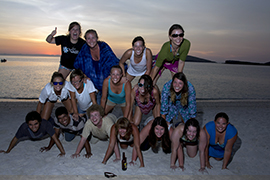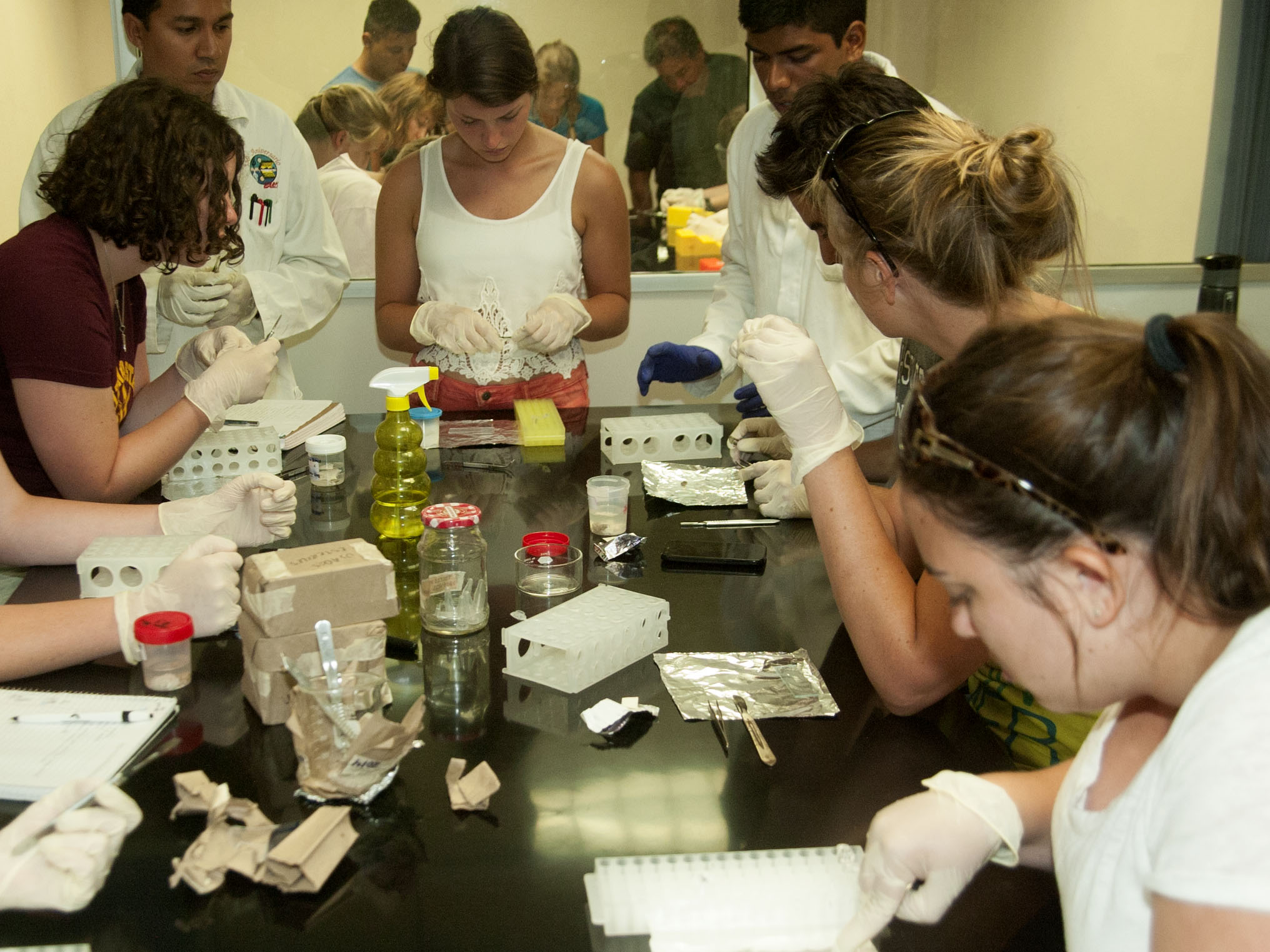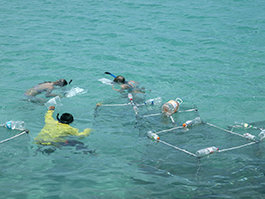Tropical Marine Biological Research

This course is an apprenticeship in the conduction of research in tropical marine habitats. Students from Western Washington University and students from Universidad Autónoma de Baja California Sur (UABCS) work together to enhance their skills in the process of science.
Both American and Mexican instructors work together with American and Mexican students. Our Mexican colleague, Dr. Sergio Flores-Ramírez, is faculty at UABCS, which has a strong undergraduate program in marine biology. This collaboration between WWU and UABCS faculty allows students to learn about marine biology from experts in the region and experience different research methods and approaches employed by other scientists. The course also expands tremendously the undergraduate learning experience of Western students by thoroughly immersing them in a new culture through direct interactions with instructors and students from México. This opportunity to learn marine biology and science skills with students from México is the highlight of the course for all Western students.
Given our background in science education, students learn about marine biology and the process of science with effective teaching pedagogy that includes laboratory and field-based guided projects and independent research that will allow students to master science content and process as apprentices.
In short, our course provides an enhanced culminating experience for students on their way to become future scientists.

Habitat Surveys and Guided Projects
During the first half of the course students conduct habitat surveys in intertidal, subtidal, mangrove and coral-reef habitats. One goal of these surveys is to begin devolping scientific questions that will act as the seeds of independent projects. Students report their findings with a collection of photographs of all the different animals observed in each habitat and with answer to specific questions regarding their observations.
Under the guidance of the instructors, students also conduct research in the physiology, genetics and behavior of marine organisms. At the end, each student submits a scientific paper from one of the three guided projects.

Independent Projects
A hallmark of the class is the opportunity afforded to students of conducting their own project during the last half of the course. We encourage students to develop their own projects as soon as possible to ensure a smooth collection of data. Although we suggest that students work in groups, individual projects are also permitted.
At the end of the course students present their findings orally in the form of a scientific presentation and in writting in the form of a scientific paper.
You can read the papers from past independent projects by clicking the links in the section Relevant Documents.